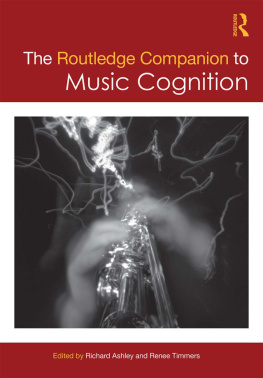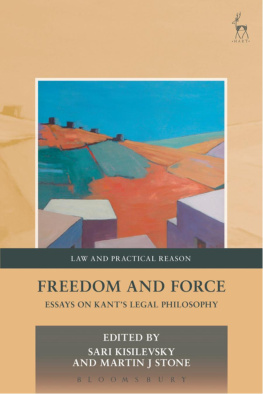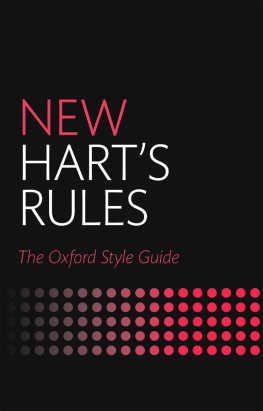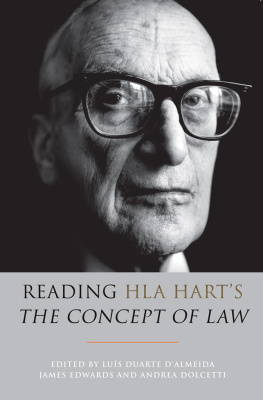The Routledge Companion to Music Cognition
The Routledge Companion to Music Cognition addresses fundamental questions about the nature of music from a psychological perspective. Music cognition is presented as the field that investigates the psychological, physiological, and physical processes that allow music to take place, seeking to explain how and why music has such powerful and mysterious effects on us. This volume provides a comprehensive overview of research in music cognition, balancing accessibility with depth and sophistication.
A diverse range of global scholarsmusic theorists, musicologists, pedagogues, neuroscientists, and psychologistsaddress the implications of music in everyday life while broadening the range of topics in music cognition research, deliberately seeking connections with the kinds of music and musical experiences that are meaningful to the population at large but are often overlooked in the study of music cognition. Such topics include:
Musics impact on physical and emotional health
Music cognition in various genres
Music cognition in diverse populations, including people with amusia and hearing loss
The relationship of music to learning and accomplishment in academics, sport, and recreation
The broader sociological and anthropological uses of music
Consisting of over forty essays, the volume is organized by five primary themes. The first section, Music from the Air to the Brain, provides a neuroscientific and theoretical basis for the book. The next three sections are based on musical actions: Hearing and Listening to Music, Making and Using Music, and Developing Musicality. The closing section, Musical Meanings, returns to fundamental questions related to musics meaning and significance, seen from historical and contemporary perspectives. The Routledge Companion to Music Cognition seeks to encourage readers to understand connections between the laboratory and the everyday in their musical lives.
Richard Ashley is Associate Professor of Music Theory and Cognition at Northwestern University, where he also holds appointments in Cognitive Science and Cognitive Neuroscience.
Renee Timmers is Reader in Psychology of Music at the Department of Music, The University of Sheffield, UK, where she directs the research center Music, Mind, Machine in Sheffield, and teaches psychology of music at undergraduate and postgraduate level.
The Routledge Companion to Music Cognition
Edited by
Richard Ashley and Renee Timmers
First published 2017
by Routledge
711 Third Avenue, New York, NY 10017
and by Routledge
2 Park Square, Milton Park, Abingdon, Oxon OX14 4RN
Routledge is an imprint of the Taylor & Francis Group, an informa business
2017 Taylor & Francis
The right of the editors to be identified as the author of the editorial material, and of the authors for their individual chapters, has been asserted in accordance with sections 77 and 78 of the Copyright, Designs and Patents Act 1988.
All rights reserved. No part of this book may be reprinted or reproduced or utilised in any form or by any electronic, mechanical, or other means, now known or hereafter invented, including photocopying and recording, or in any information storage or retrieval system, without permission in writing from the publishers.
Trademark notice : Product or corporate names may be trademarks or registered trademarks, and are used only for identification and explanation without intent to infringe.
Library of Congress Cataloging-in-Publication Data
Names: Ashley, Richard (Musicologist), editor. | Timmers, Renee, 1974 editor.
Title: The Routledge companion to music cognition / edited by Richard Ashley and Renee Timmers.
Description: New York: Routledge, 2017. | Includes bibliographical references and index.
Identifiers: LCCN 2016050960 (print) | LCCN 2016052264 (ebook) | ISBN 9781138721050 (hardback) | ISBN 9781315194738
Subjects: LCSH: MusicPsychological aspects. | MusicPhysiological aspects. | MusicPerformancePsychological aspects. | Musical perception. | MusicPhilosophy and aesthetics.
Classification: LCC ML3830 .R79 2017 (print) | LCC ML3830 (ebook) | DDC 781.1/1dc23
LC record available at https://lccn.loc.gov/2016050960
ISBN: 978-1-138-72105-0 (hbk)
ISBN: 978-1-315-19473-8 (ebk)
Typeset in Bembo
by Apex CoVantage, LLC
Contents
Guide
Richard Ashley is Associate Professor of Music, Cognitive Science, and Cognitive Neuroscience at Northwestern University. His research interests are in cognitive aspects of musical structure, musical memory, music and emotion, and expressive performance. A former president of the Society for Music Perception and Cognition, he remains active as a performer.
Mylne Barbaroux is a PhD student in Cognitive Neuroscience. She is working with Mireille Besson on the links between auditory perception and word learning in adults. Specifically, she is combining psychoacoustical training procedures with electoencephalographic measurements. To test for transfer effects on syllabic categorization and word learning.
Fernando Benadon is Associate Professor of Music at American University. His work explores rhythm and timing in jazz, popular music, speech, and global drumming traditions. An active composer, he has released two albums and was the recipient of a Guggenheim Fellowship.
Tonya R. Bergeson , PhD holds faculty positions at Butler University and Indiana University School of Medicine. Her research interests include the effects of early auditory experience on speech, language, and music development in infants and children with hearing loss who use hearing aids and cochlear implants.
Mireille Besson is Research Director at CNRS. Her research interests are centered on music, language, and the brain, mainly studying between domain transfer effects using electrophysiological methods. She is interested in the societal impact of music training, using music as an educational tool for childrens development, and as a remediation tool for patients.
Laura Bishop is a Postdoctoral Researcher at the Austrian Research Institute for Artificial Intelligence (OFAI) in Vienna, Austria. She received her PhD in music cognition from the MARCS Institute, University of Western Sydney, Australia. Her research investigates audiovisual integration, visual communication, and coordination among ensemble musicians during creative collaboration.
Ragnhild Brvig-Hanssen is Associate Professor in Popular Music Studies at the University of Oslo. She has published widely on music production, digital media, remix culture, and sound studies and is co-author of the book Digital Signatures: The Impact of Digitization on Popular Music Sound (MIT Press, 2016).
Anne Caclin holds a full-time INSERM research position within the Brain Dynamics and Cognition team of the Lyon Neuroscience Research Center. She completed a PhD and postdoctoral research in cognitive neuroscience.
Elaine Chew is Professor of Digital Media at Queen Mary University of London. A pianist (LTCL 1985, FTCL 1987) and operations researcher (PhD MIT 2000, SM MIT 1998) by training, her research centers on the mathematical and computational modeling of music structures and expressivity, including automated analysis and scientific visualization. She is the author of Mathematical and Computational Modelling of Tonality: Theory and Applications (Springer, 2014).










